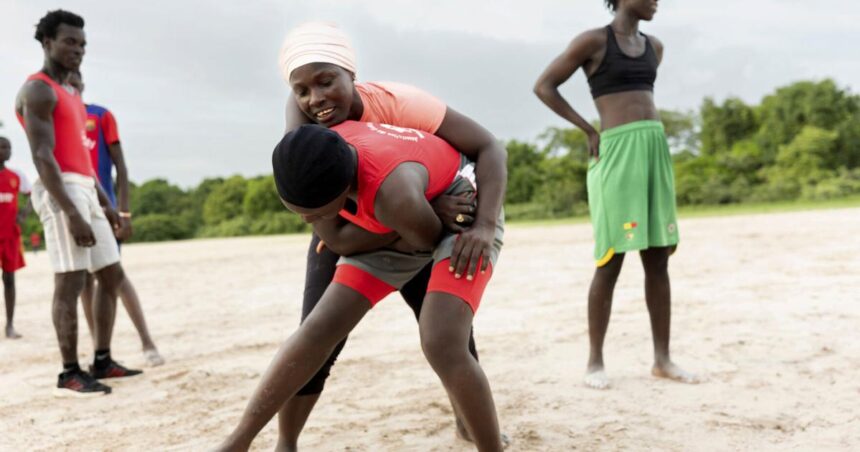MLOMP, Senegal — As the West African heat begins to fade, a group of teenagers in Mlomp, a village in southern Senegal, engage in traditional wrestling, known locally as laamb, against the backdrop of palm trees.
Wrestling is a popular sport in Senegal, celebrated akin to rock stars. The local variant, laamb, has deep roots in the traditional culture, with wrestling matches often held for entertainment and special occasions. While professional wrestling attracts large crowds and international fame, it has remained mostly inaccessible to women in the country.
However, an exception exists in the Casamance region, where women from the Jola ethnic group participate in wrestling alongside men. In Mlomp, a recent training session saw a majority of girls engaging in the sport on the sandy ground.
Coach Isabelle Sambou, a former Olympian and wrestling champion, emphasized the cultural significance of women’s participation in wrestling, reflecting on her family’s wrestling tradition. Despite societal norms that restrict women’s involvement in the sport after marriage, Sambou’s determination led her to a successful career as a professional wrestler.
People are also reading…
Despite facing challenges and criticism, Sambou pursued her passion for wrestling and represented Senegal in international competitions. Her dedication to coaching young wrestlers, especially girls, has yielded impressive results, with her students winning medals at national events.
However, the lack of resources and support for female athletes in Senegal has made Sambou’s post-retirement life challenging. Despite her accomplishments, she struggles to make ends meet while continuing to coach the national wrestling team on a voluntary basis.
As perceptions of women in sports evolve in Senegal, Sambou’s influence as a coach has expanded, with parents seeking her guidance for their children, regardless of gender. Her niece, Mame Marie Sambou, following in her aunt’s footsteps, aspires to become a professional wrestler and compete internationally.





